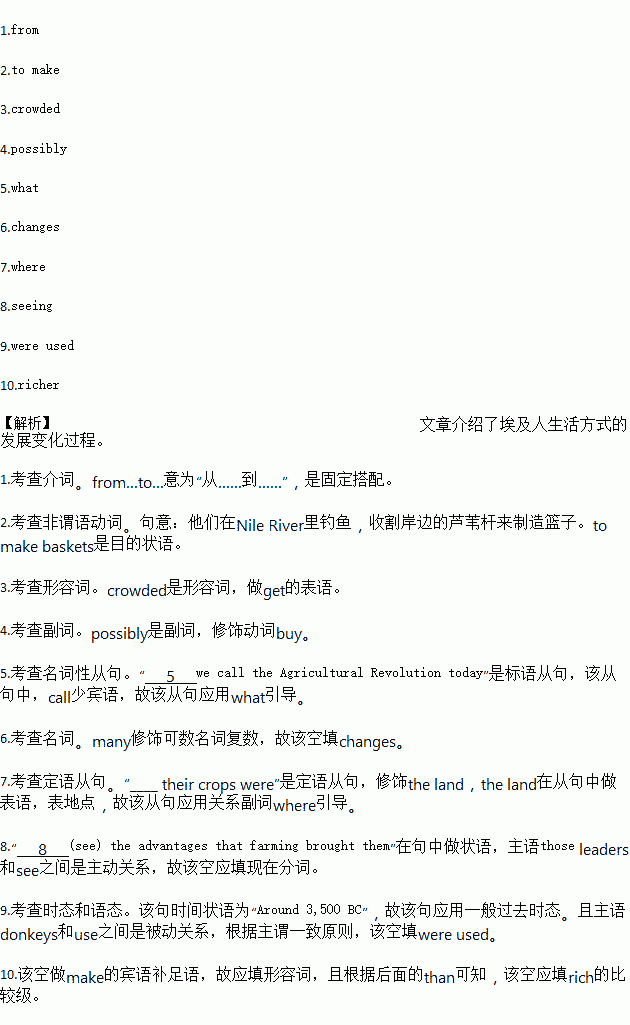题目内容
During most of the Stone Age, people lived by hunting and gathering their food in Egypt. They traveled1. place to place in the Nile Valley, harvesting wild grasses, digging up roots, and finding bird eggs. They fished in the Nile River and gathered reeds (芦苇杆) from its shores 2. (make) baskets.
By around 10,000 BC, Egypt had gotten so3.(crowd) that people were forced to begin growing their own food. People also began to keep cows, sheep and pigs that they4.. (possible) bought from their West Asian neighbors. This is5.we call the Agricultural Revolution today.
But farming brought many other6. (change) too. Once people started planting crops, they had to defend the land7.their crops were. There was more fighting. Soon people began to band together into larger communities that could fight better. They chose leaders. 8.(see) the advantages that farming brought them, those leaders forced more and more people to start farming and settle down under their leadership.
Around 3,500 BC, donkeys9.(use) to carry ivory and gold north into Egypt, and to carry Egyptian things south to Sudan and Kenya. That made both places 10.(rich) than they were before. Together, the trade and the farming helped to start the Old Kingdom.
 阅读快车系列答案
阅读快车系列答案

 pany is advised to seize the new digital opportunities.
pany is advised to seize the new digital opportunities. d C. hopeless D. freezing
d C. hopeless D. freezing